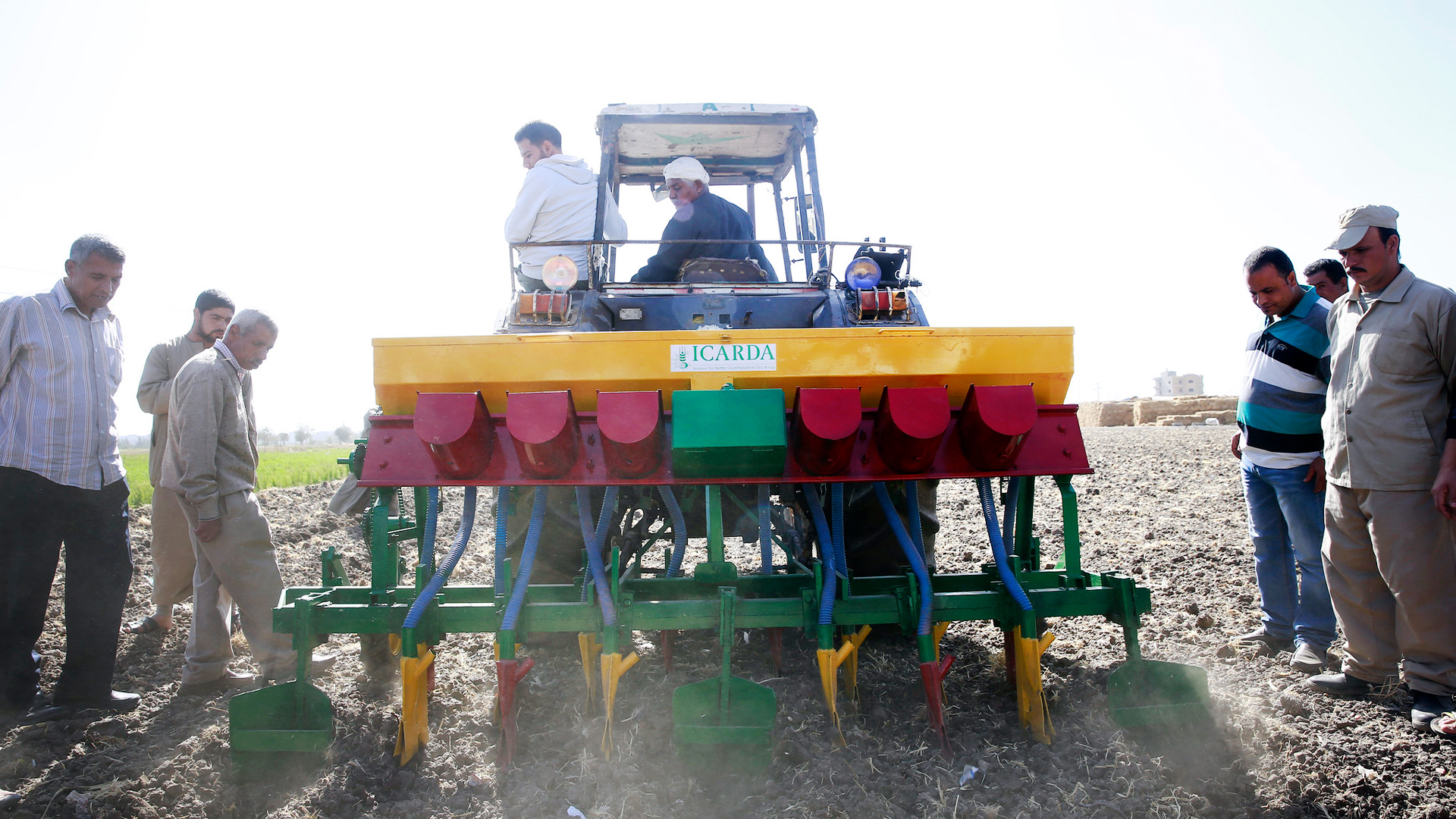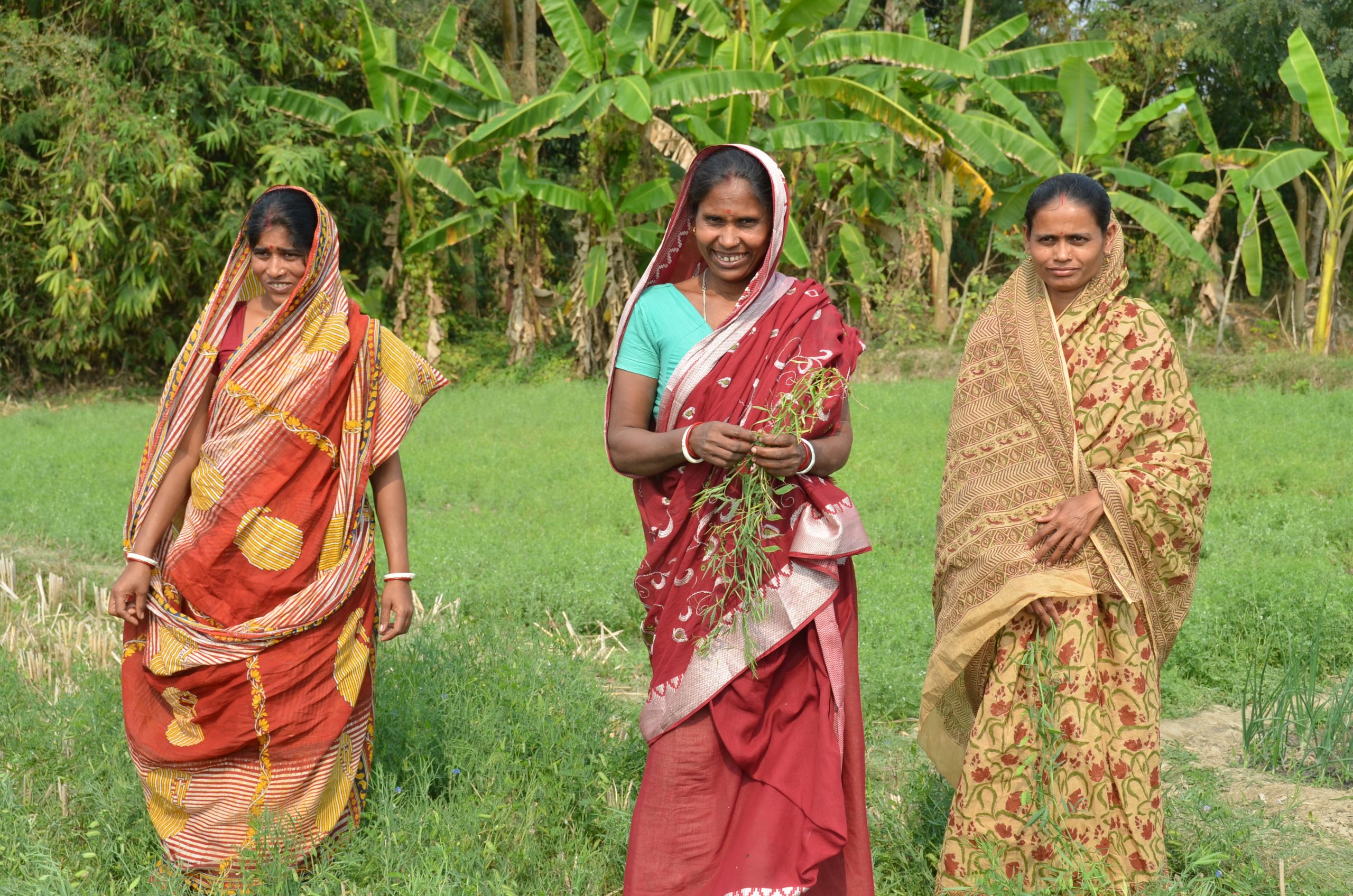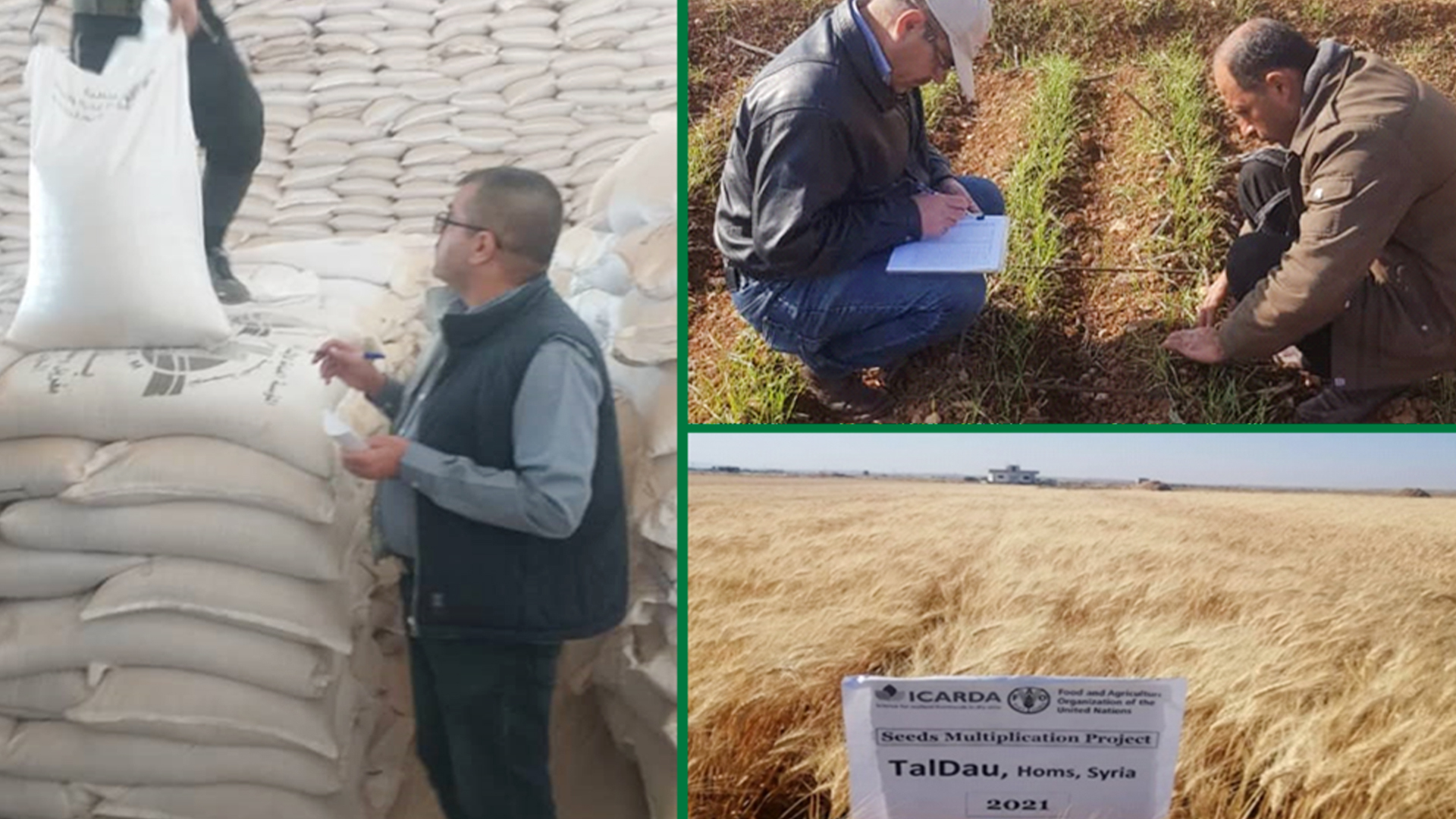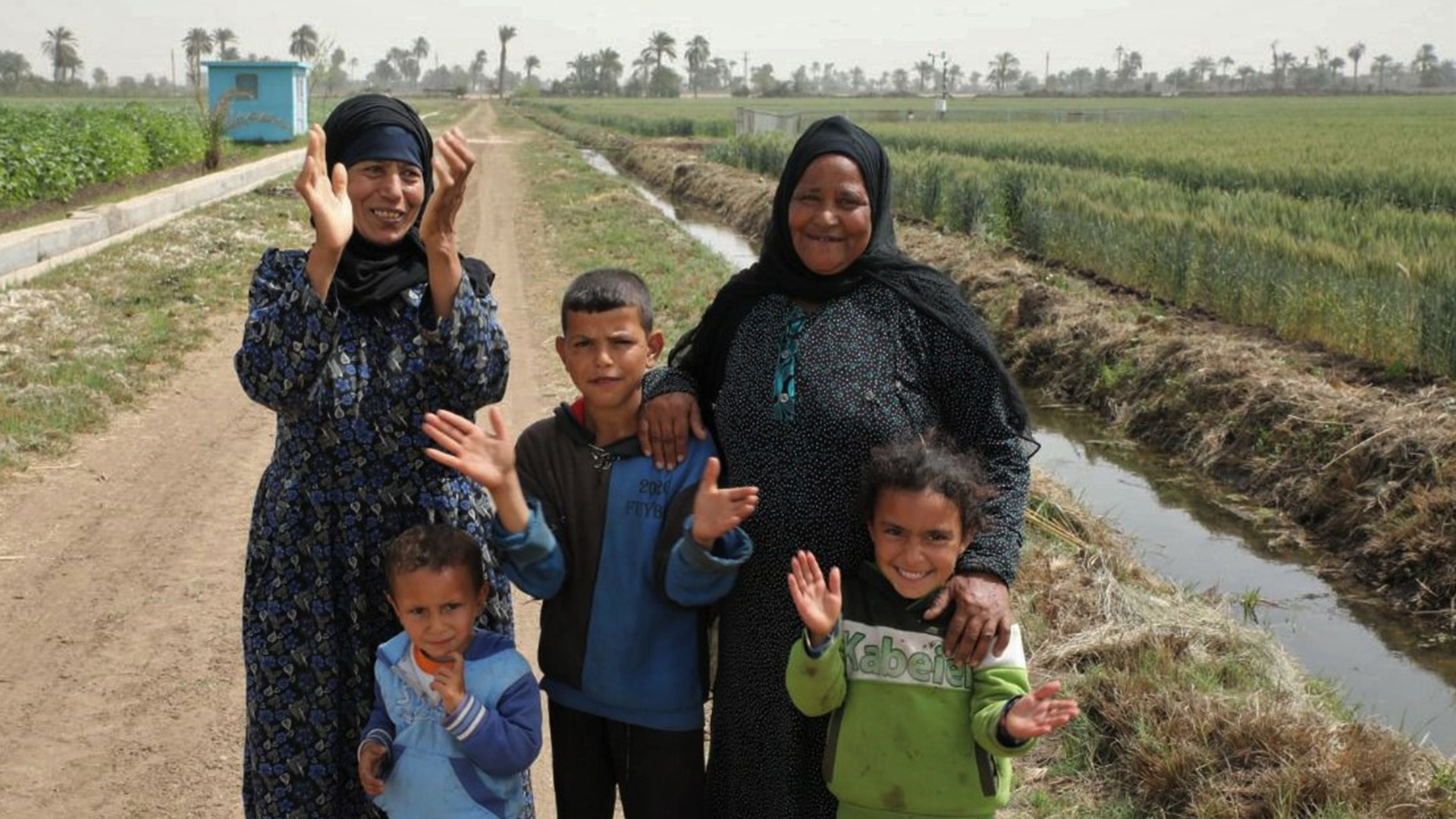

No Posts Found.
Egyptian wheat growers adopting ICARDA’s raised-bed technology continued to experience benefits in 2021. These included a 937 kilogram per hectare (12.8 percent) increase in yield, a US$77.60 per hectare (9.5 percent) increase in gross margins, an 824.6 cubic meter per hectare (15.1 percent) reduction in irrigation water application and a 5.6 percent increase in water productivity. Raised bed machines can be attached to standard tractors, and improve yields and water efficiency by creating raised soil beds, on which they simultaneously sow crops and create adequate furrows along which optimum water easily travels, rather than flooding whole fields (the traditional irrigation method)

An economic impact assessment carried out last year found that ICARDA-improved lentil technologies have contributed to a massive productivity gain in West Bengal. When 507 sample farm households were studied, farmers adopting ICARDA’s improved lentil technologies achieved a 33.36 percent increase in production over traditional lentil growers. Proper land preparation, quality seed use and better disease pest management were the prime factors behind the increase.

Throughout 2021, farmers affected by the reduction of available seeds due to civil unrest in Syria, received support from the ‘FAO Smallholder Support Program.’. The program helps key farmers become community-based seed suppliers which in turn increases access to quality seed for regional farmers in general. The supplier-farmers, based in Aleppo, Homs and Deir Azor, were supplied with quality wheat, barley, chickpea and lentil seed, and given inputs, training and assistance to produce and commercialize the seed.

In Palestine, ICARDA partnered with FAO to test and out-scale in-situ rainwater harvesting approaches that improve the storage of water where it is needed – reducing losses due to delivery issues, optimizing rainfall and improving water-use planning. ICARDA implements water productivity improvements at the watershed level and supports the scaling of in-situ water harvesting, especially for improved agroforestry and orchard agriculture. ICARDA will also support capacity building and empowerment activities through training and demonstrations for targeted communities.

ICARDA has introduced permaculture technology to Jordan’s Badia, the desert and steppe region covering the country’s northeast. Permaculture is an approach that encourages self-reliance through strategically planning how to use natural resources sustainably. As a low-cost development tool for managing dryland resources in agro-pastoral farming systems, permaculture promises to increase yields, reduce costs and ensure dryland resources become more efficient, diverse and multifunctional for food and nutrition-insecure agro-pastoral communities.
